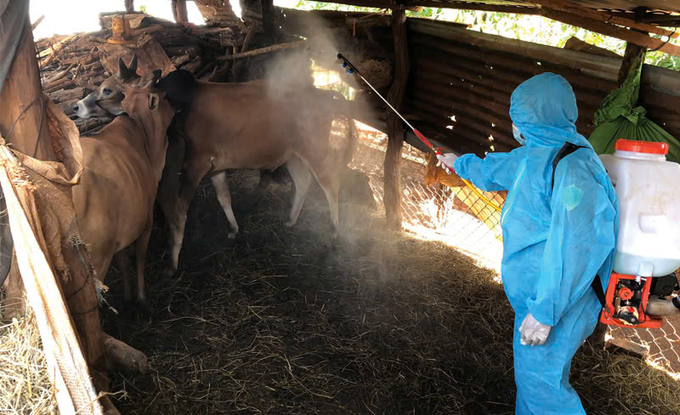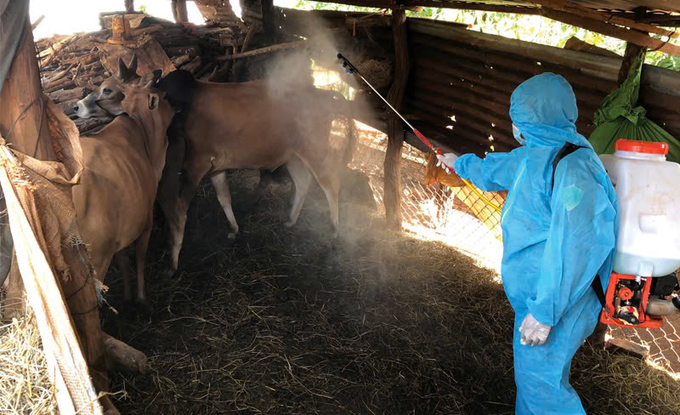The Ministry of Agriculture and Rural Development requires Northern provinces and cities to urgently implement measures to prevent and control livestock diseases after super typhoon Yagi.

On September 9, the Ministry of Agriculture and Rural Development sent an urgent dispatch to the People’s Committees of provinces and cities, requesting the implementation of proactive measures to prevent and control epidemics in livestock.
The dispatch clearly stated that there is a high risk of disease outbreaks after storm No. 3 (super typhoon Yagi) due to heavy rains causing severe flooding from September 7, 2024, causing many localities to face the risk of disease spreading in livestock and poultry.
Therefore, the Ministry of Agriculture and Rural Development requires localities to carry out general cleaning, disinfection and sterilization immediately after the flood recedes, in order to destroy pathogens existing in the environment. Initially, cleaning livestock areas, treating waste and preventing environmental pollution are considered urgent measures to help minimize the spread of dangerous epidemics such as African swine fever, avian influenza, foot and mouth disease and lumpy skin disease in buffaloes and cows.
In addition, the Ministry of Agriculture and Rural Development especially emphasized the need to improve the resistance of livestock by providing adequate nutrition and supplementing necessary vitamins and minerals. Departments and branches are directed to organize screening and full vaccination of livestock and poultry, especially in areas where epidemics have occurred or are at high risk. This is an important measure to limit the risk of disease outbreaks after floods.
Another noteworthy point is the strengthening of monitoring, early detection of signs of disease in livestock, and timely handling of suspected cases. Pet owners are advised to immediately report to authorities and veterinary agencies when detecting sick livestock, avoiding slaughtering, trading, or dumping dead livestock into the environment, causing the risk of spreading disease. Veterinary units need to coordinate closely to investigate and handle outbreaks in accordance with regulations.
The Ministry of Agriculture and Rural Development also recommends that provinces and cities need to have plans to support flood damage recovery, including support for breeds, medicines, vaccines and chemicals for environmental treatment. This will not only help restore production but also contribute to preventing widespread disease outbreaks. Reporting on difficulties, obstacles, and support needs from localities is also required to be done regularly so that the Ministry of Agriculture and Rural Development has a basis to synthesize and propose timely support plans to the Government.
In addition, it is necessary to establish working groups to go directly to affected areas to direct, urge and guide the implementation of disease prevention and control measures, contributing to quickly stabilizing agricultural production. With synchronous and drastic measures, the Ministry of Agriculture and Rural Development hopes to effectively prevent disease risks after floods, help protect livestock and support the livestock industry to overcome this difficult period.
Tho Tho

